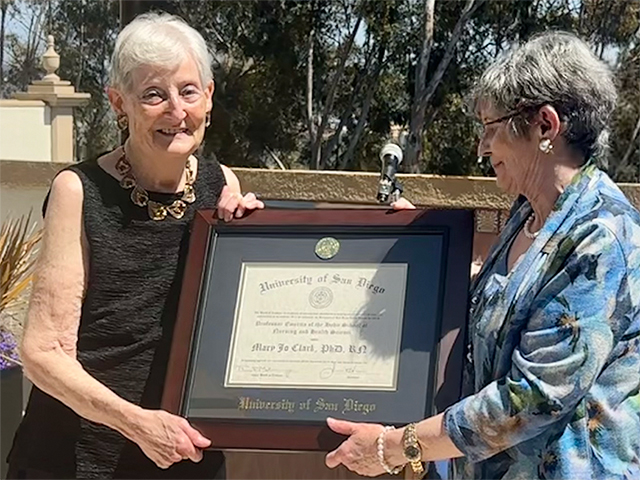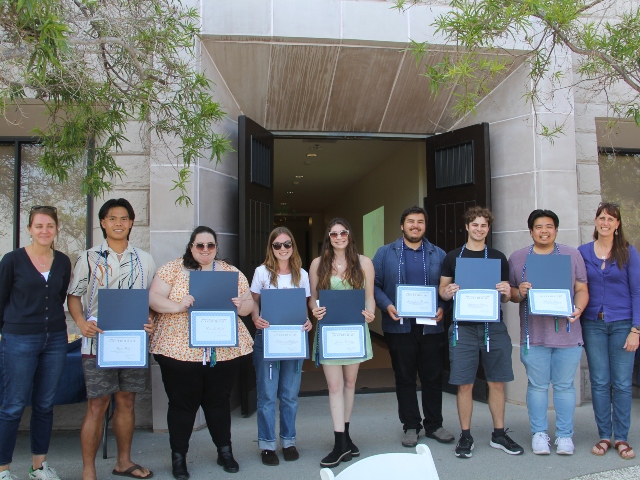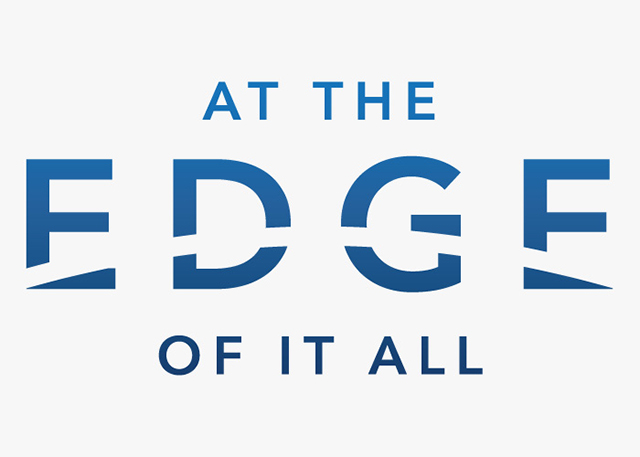Kroc IPJ's Impact:Peace Initiative Launch is a Success
Andrew Blum, PhD, executive director of the Kroc School's Joan B. Kroc Institute for Peace and Justice, was tired — but it was the best kind of tired.
Last week, Blum, IPJ staff, community partners and 35 participants spent quality time engaging in important dialogue, listening, knowledge-building, powerful peacebuilding planning and, best of all, agreeing on a desire for an action-based approach to stop global violence.
“I’m super excited,” Blum offered, less than 24 hours after the University of San Diego school hosted a launch event for its peacebuilding initiative, Impact:Peace on May 20-22. “By the end of the event, everyone was really leaning into Impact:Peace, they wanted to stay engaged and that, to me, means we’re onto something here. We have something that creates value for people, value to the field and can make a real impact on the ground. We had people in the room who don’t waste their time on things that aren’t going to have a real impact.”
There is a clear need for action that has impact. The world is experiencing a 30-year high in violent conflict. Battle deaths worldwide have increased by 340 percent over the last 10 years, which follows a 60-year decline since the end of World War II.
The Kroc School, alongside The Stanley Foundation and the +Peace Coalition, are partners in an initiative to create more effective peacebuilding efforts that can significantly reduce violent conflict worldwide. Synthesizing and producing evidence and utilizing shapers and influencers the hope is to accelerate change processes to ultimately lessen violent conflict.
Impact:Peace has the support of Milt Lauenstein, founder of War and Peacebuilding, who, now in his 90s, wants to help reduce armed conflict in the world. One of his other efforts, the Purdue Peace Project, successfully supports locally led peacebuilding in Africa and Central America. Impact:Peace came to be through a $1 million gift by Lauenstein to the Kroc School. The agreement also calls for USD to establish a challenge to raise an additional $1 million in matching funds.
“Efforts to limit armed conflict are fragmented and inadequate, with little evidence about where best to allocate resources,” Lauenstein said in a Summer 2019 USD Magazine article. “I’m confident that the work of Impact:Peace will contribute significantly to improving the effectiveness of efforts to promote peace.”
Those in attendance at last week’s launch were key stakeholders from organizations focused on evidence-based research, peacebuilding, and international conflict issues and they brought a wealth of experience. USD’s representation beyond Blum included Kroc School Associate Dean and Distinguished Professor of Human Security and Peacebuilding, Necla Tschirgi, 2012 Kroc IPJ Women PeaceMaker Alice Wairimu Nderitu from Kenya and Laura Webber, a 2019 graduate of the Kroc School’s MA in Peace and Justice Studies program and Kroc IPJ graduate assistant. Ev Meade, PhD, Professor of Practice and Faculty Director of the Kroc School’s Trans-Border Institute hosted a group visit to the U.S.-Mexico border.
Blum said the conference centered on three questions: Where is the most important change happening in regards to peacebuilding and really transform peace and violence prevention better and have the most impact? How can we use evidence to accelerate those change processes? And third, what do we need to build or what kind of infrastructure needs to be created to provide that kind of evidence?
The content succeeded. “There was a hunger, an appetite for collaboration, speaking in a single voice and getting behind a single strategy than I would have thought,” Blum said. “I think people are tired of working in all fragmented ways and want this center of gravity for the field. Everyone is looking for concrete action. I think it’s understood we’ll be action-oriented.”
“One of the last things we did was ask people to make commitments and everyone did,” said Blum, referring to an exercise in which everyone wrote a commitment on a sticky note and placed it on a wall for visibility. “One was ‘I just want to stay informed,’ which is fine and is at the low end, but up to ‘I will be directly asking you for evidence because this is what we’re doing,’ or ‘I want you to come meet my colleagues in the State Department.’ … I heard people say this wasn’t just a convening where we learned a bunch of stuff, this was a call to action, a call for how do we create the changes we want to see?”
Another key element was Blum’s announcement that Rachel Locke from New York University’s Center on International Cooperation, was announced as Impact:Peace’s inaugural director.
“We’re ecstatic to have her, “ Blum said. “She’s not just good, her reputation is stellar. Getting her on board immediately raises Impact:Peace’s credibility.”
It’s one of many steps Blum, the Kroc School, its partners and participants are taking in hopes of realizing Impact:Peace’s ultimate goal. “Big picture, we’re part of a movement that’s looking to end all forms of violence globally by 2030,” he said. “That’s our big, wild, audacious goal.
“Where we want to be in a few years is be the go-to place where people know they can come when they are working to create really important change to get to Congress and take peacebuilding more seriously. It’s getting UN members to commit to reducing violence. We’re talking about getting involved in a new movement, ‘Peace in the Cities’ where we get mayors involved all around the world to reduce violence in their cities. What is the evidence they need to accelerate that, to make it real, to make an impact. We want to be right at the center of the most exciting changes, change processes, change opportunities that are happening in our field.”
— Ryan T. Blystone
Contact:
USD News Center
news@sandiego.edu
(619) 260-4681




